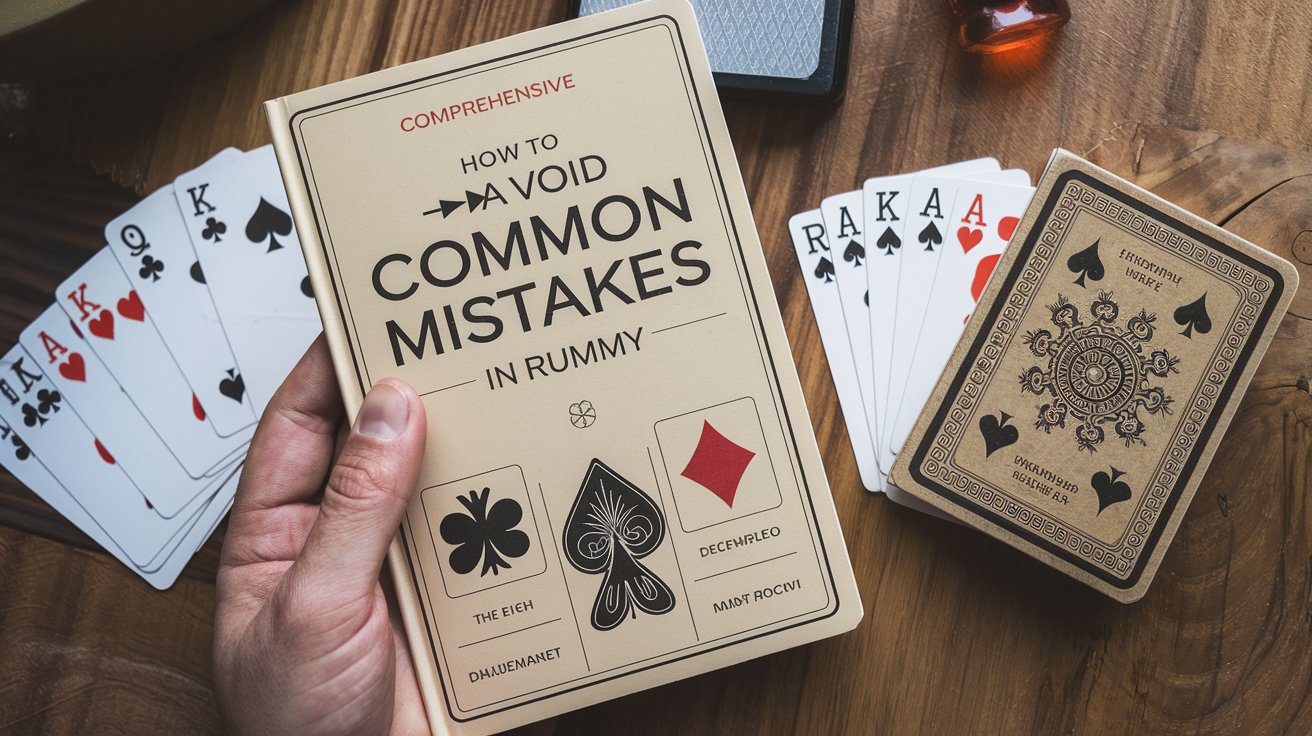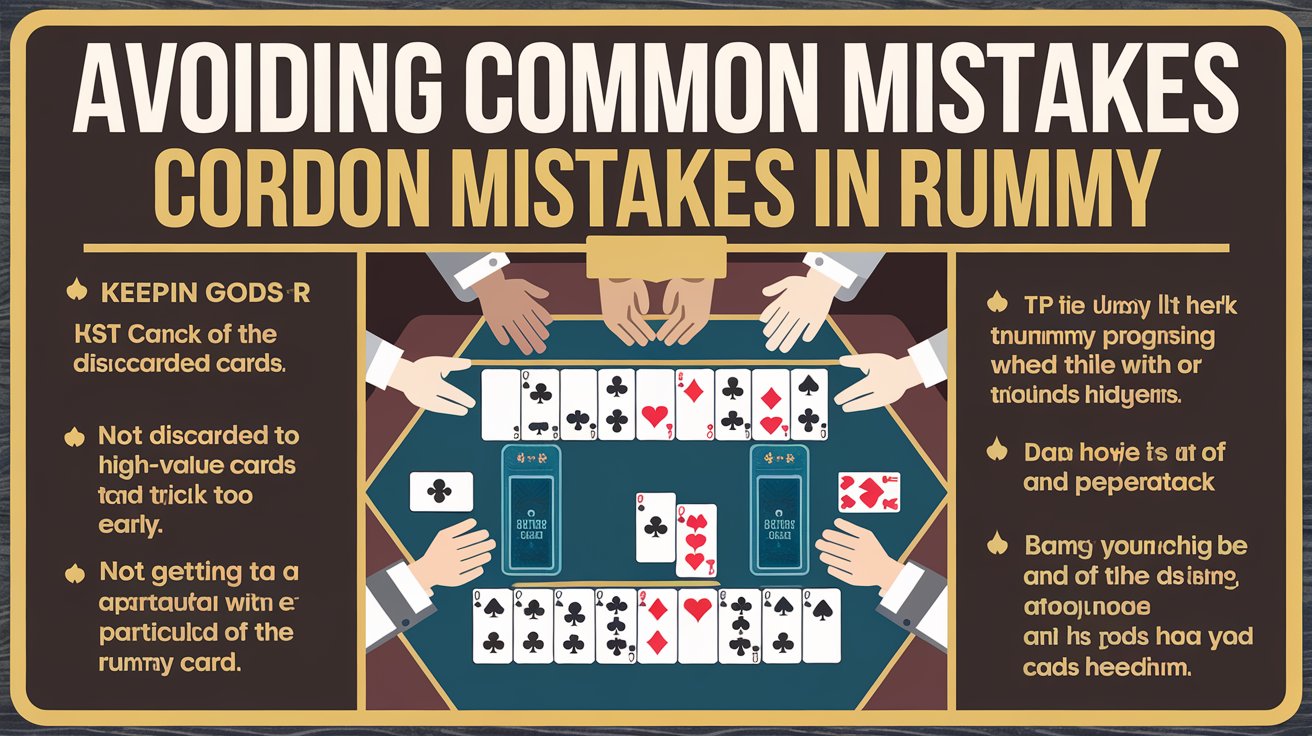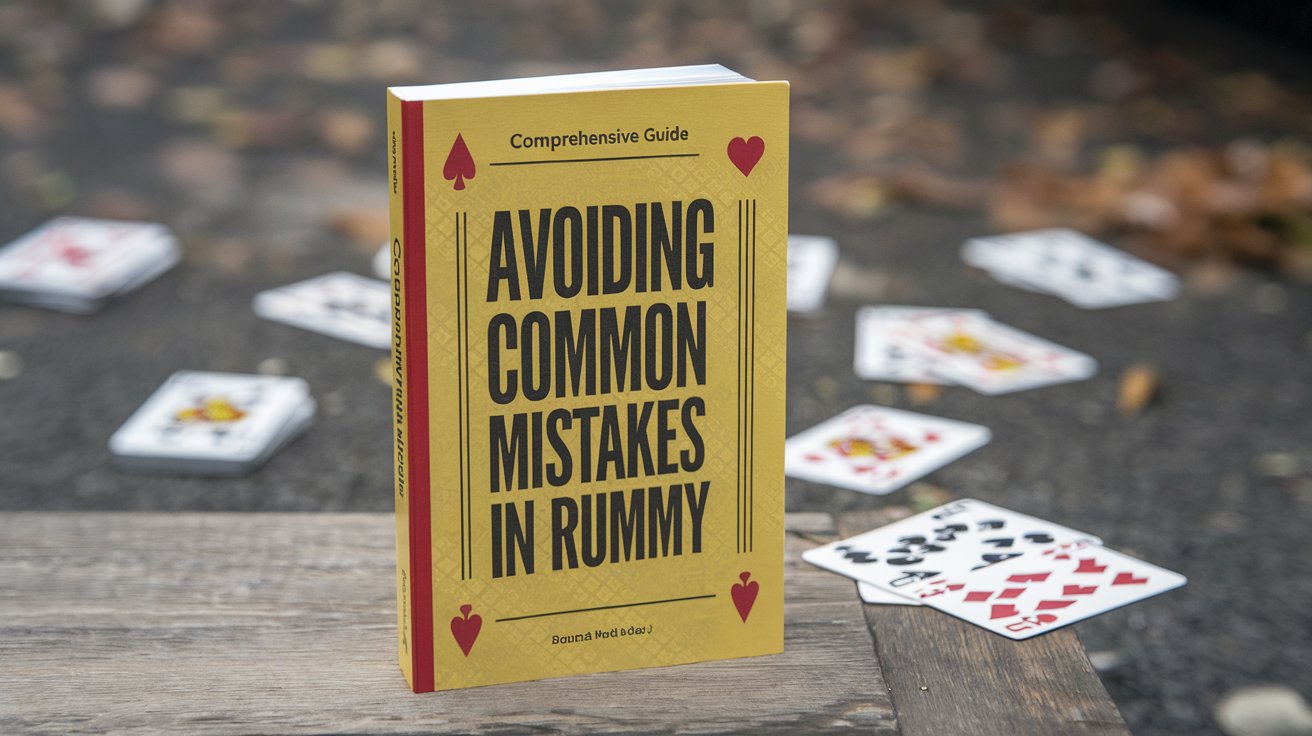Rummy is a game that blends skill, strategy, and a little bit of luck. Whether you’re playing Gin Rummy, Indian Rummy, or 21 Cards Rummy, mastering the game takes time, practice, and a strong understanding of both the rules and strategies involved. One of the key factors that separates experienced players from beginners is the ability to avoid common mistakes that can cost them the game.
In this blog, we’ll discuss the most frequent mistakes players make in Rummy and provide you with tips and strategies to avoid them. By mastering these tips, you’ll elevate your game, reduce errors, and increase your chances of winning.
1. Not Organizing Your Cards Properly

One of the most fundamental mistakes players make, especially beginners, is failing to organize their cards efficiently. The way you organize your hand significantly impacts how quickly you can spot potential sets or runs, and disorganization can slow down your decision-making.
How to Organize Your Cards in Rummy:
- Group by Suits: Sort your cards by their suits (♠, ♥, ♦, ♣). This will make it easier to identify potential runs.
- Group by Rank: Within each suit, arrange your cards in ascending order (e.g., 2♠ 3♠ 4♠). This helps you quickly assess whether a card is part of a sequence.
- Separate Jokers: Keep Jokers or wild cards in a separate pile so you know when and where you can use them effectively.
Tip:
By organizing your hand right from the start, you’ll be able to spot potential melds (sets or runs) much faster and will be able to plan your moves more efficiently.
2. Holding Onto High-Value Cards
In Rummy, high-point cards (like Kings, Queens, Jacks, and Aces) can quickly increase your score if you’re left holding them at the end of the game. One of the most common mistakes players make is holding onto high-value cards too long, especially if they aren’t contributing to a set or run.
Why It’s a Mistake:
- Endgame Risk: If you don’t finish your hand before someone else, you’ll be stuck with high-value cards, which will increase your score.
- Lack of Flexibility: If your high-value cards don’t fit into any set or run, they are essentially “dead weight.”
How to Avoid This Mistake:
- Discard High-Value Cards Early: If these cards aren’t part of a set or run, discard them as soon as possible to minimize your risk.
- Prioritize Low-Value Cards: Focus on low-value cards like 2s, 3s, and 4s that can fit into multiple sets and runs. This will help you keep your options open.
Tip:
When in doubt, discard face cards early if they aren’t needed in your hand. This minimizes the risk of accumulating points at the end of the game.
3. Rushing to Go Out

It’s tempting to go out and win as soon as you think you’re close to finishing your hand, but rushing to go out is one of the most common mistakes in Rummy. Completing your hand prematurely can leave you with high-value cards and cause you to miss out on the opportunity to reduce your points or complete other combinations.
Why It’s a Mistake:
- Incomplete Hand: You might go out with incomplete sets or runs, leaving you with leftover high-point cards.
- Lack of Control: Rushing can cause you to overlook critical cards in your hand, making it harder to play strategically.
How to Avoid This Mistake:
- Wait for the Right Moment: Don’t go out until you have completed all your melds and are confident that no more cards need to be played.
- Finish With Low-Point Cards: If you have high-value cards that can’t form a set or run, it’s better to discard them before going out.
Tip:
Take your time and wait for a clear path to finish your hand. This will help you avoid being left with high-value cards and ensure a clean win.
4. Ignoring Your Opponents’ Moves
Rummy isn’t just about focusing on your own hand; it’s also about paying attention to what your opponents are doing. One of the biggest mistakes players make is ignoring their opponents’ discards and draws. This can prevent you from anticipating their strategies and disrupt your own game plan.
Why It’s a Mistake:
- Missed Opportunities: If you’re not paying attention to what your opponents are discarding, you may discard cards that would have completed their sets or runs.
- Incomplete Knowledge: Without observing your opponents’ moves, you won’t know which cards they are actively working with, making it harder to block them.
How to Avoid This Mistake:
- Watch Their Discards: Keep track of the cards your opponents are discarding, as this can give you clues about their hand. If they discard a 4♠, for example, they may be working on a run that involves spades.
- Observe Their Pickups: If an opponent consistently picks up cards from the discard pile, they are likely trying to complete a set or run. Be cautious about discarding cards that fit into their combinations.
Tip:
Take note of your opponents’ strategies and playing style. This information will help you make more informed decisions about which cards to keep and which to discard.
5. Overusing Jokers and Wild Cards
Jokers and wild cards are incredibly powerful in Rummy, but overusing them is a common mistake. Many players rely too heavily on Jokers to complete their hands, but this can lead to a lack of flexibility and missed opportunities.
Why It’s a Mistake:
- Lack of Flexibility: Overusing Jokers to complete easy combinations can leave you with fewer options for more difficult cards later on.
- Wasted Potential: If you use a Joker on a set or run that can easily be completed with a regular card, you’re wasting a valuable resource that could be used later in the game.
How to Avoid This Mistake:
- Use Jokers Sparingly: Save your Jokers for situations where you are missing one or two key cards that prevent you from completing a set or run.
- Avoid Using Jokers on Easy Sets: Don’t use a Joker to complete a set that can be easily completed with a regular card. Use it for more difficult hands that require flexibility.
Tip:
Conserve your Jokers for difficult situations and only use them when they provide significant help in completing your hand.
6. Failing to Adjust Your Strategy During the Game

In Rummy, you need to be flexible and adapt your strategy as the game progresses. Failing to adjust your play based on your hand and the cards that are available can lead to missed opportunities and mistakes.
Why It’s a Mistake:
- Rigidity: If you stick to one strategy without considering the changing dynamics of the game, you might end up with a suboptimal hand.
- Missing Opportunities: Not adjusting to the cards available can prevent you from completing your sets or runs efficiently.
How to Avoid This Mistake:
- Assess Your Hand Continuously: Regularly reassess your hand to see if your strategy still works. If you’re waiting for a certain card, but it’s not coming, consider alternative strategies.
- Be Adaptable: If you start with a plan to form sets but realize that you have better opportunities to form runs, adjust your strategy accordingly.
Tip:
Always be aware of the changing dynamics of the game. Flexibility and adaptability are crucial to making the best decisions in Rummy.
7. Not Watching the Clock or Game Time
In online Rummy, time management plays an essential role, especially in games with time limits. One common mistake is failing to monitor the time, leading to rushed decisions in the final moments of the game.
Why It’s a Mistake:
- Rushed Decisions: If you’re running out of time, you may make hasty moves that don’t align with your strategy.
- Lack of Focus: Getting distracted by the clock can cause you to lose focus and miss key opportunities.
How to Avoid This Mistake:
- Keep an Eye on the Timer: If you’re playing a timed version of Rummy, make sure you stay aware of the time left in the game. Don’t rush your decisions, but be mindful of the game’s pace.
- Plan Ahead: Plan your strategy early in the game and keep moving toward your goal efficiently to avoid getting rushed at the last minute.
Tip:
Manage your time wisely. The more calmly you play, the better decisions you’ll make, and the higher your chances of winning will be.
Conclusion: Mastering Rummy Through Strategy and Awareness
While luck is a part of every Rummy game, avoiding common mistakes and playing strategically is what separates experienced players from beginners. By organizing your cards properly, discarding wisely, avoiding hasty moves, and staying aware of your opponents’ strategies, you’ll be well on your way to mastering the game.
Remember, Rummy is a game of both patience and skill. By focusing on these tips and consistently practicing, you’ll reduce errors and improve your decision-making, ultimately increasing your chances of winning every time you play. So, the next time you sit down at the Rummy table, apply these strategies, stay focused, and watch your game improve.

Zareb Saleh is a journalist at Gulf Today and a ghostwriter for Gameoholic, specializing in gaming, technology, and digital culture. With a keen eye for industry trends, he delivers insightful stories that engage and inform readers.




